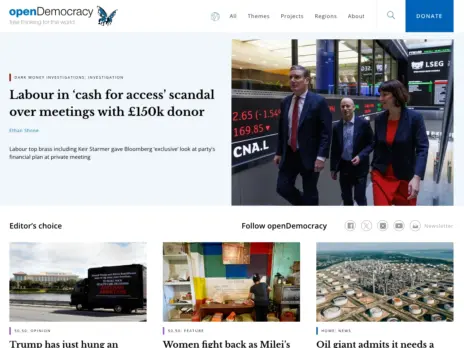Of course, you could be forgiven for thinking that the last man standing thesis is little more than an optimist’s assessment of disaster.
It is that. But interestingly, this meme is beginning to gather a bit of intellectual heft as it does the rounds.
Some has recently been supplied by Nicholas Carr, a former associate editor of the Harvard Business Review who writes a blog called Rough Type.
Carr is one of those US business writers whose brain has been wired up in precisely the opposite way to that of Karl Marx.
Just as Marx defined a philosophical framework in which most events could be read as stopping-off points on the journey toward capitalism’s ultimate collapse, Carr and his ilk tend to see most things as evidence of capitalism’s inexhaustible powers of self-renewal.
So it was that Carr recently suggested that the newspaper business is merely suffering from ‘a huge imbalance between supply and demand’caused by the ‘near-zero cost of distributing digital goods anywhere in the world”.
The web has merged all of the world’s news-gathering capacity ‘into (in effect) a single production pool serving (in effect) a single market”. The supply of news has increased by so much that its price has ‘dropped to zero”.
Under these circumstances, charging users to read news online is about as viable as charging them to breathe air, writes Carr.
The oversupply of news has also generated a vast excess of advertising inventory. Selling this inventory generates piffling revenues – so piffling that Carolyn McCall of Guardian Media Group suggested last week that online display ad markets are ‘deeply flawed“.
So far, so good. But what’s remarkable about Carr’s analysis isn’t the stuff we’re all agreed upon. It’s his capitalist-determinist forecast.
‘Markets for valuable goods do not stay disrupted,’writes Carr. ‘They evolve to a new and sustainable commercial state.”
Confronted by newspaper executives ‘pulling their hair out over the demand side of the business”, Carr suggests that they focus their attention instead upon the supply side.
Now here’s what a lot of people seem to forget: Excess production capacity goes away, particularly when that capacity consists not of capital but of people. Supply and demand, eventually and often painfully, come back into some sort of balance.
In the end, the owners of excess capacity discover that they can’t generate sufficient revenues to keep their factories (or offices) operational.
At this point, you start to witness what Carr describes as a ‘radical reduction of capacity”: fewer newspapers, editors and reporters. Intriguingly, Carr suggests that something good may end up emerging from this orgy of bankruptcy:
Market power begins – gasp, chuckle, and guffaw all you want – to move back to the producer. The user no longer gets to call all the shots. Substitutes dry up, the perception of fungibility dissipates, and quality becomes both visible and valuable. The value of news begins, once again, to have a dollar sign beside it.
Carr goes on to spin out further implications:
Once you radically reduce supply in the industry, the demand picture changes radically as well. Ad inventory goes down, and ad rates go up. And things that seem unthinkable now – online subscription fees – suddenly become feasible.
Carr has his detractors. But his scenario seems basically credible to me. Crisis is never eternal: and even the messiest revolutions eventually settle down into predictable patterns of behaviour.
Email pged@pressgazette.co.uk to point out mistakes, provide story tips or send in a letter for publication on our "Letters Page" blog






